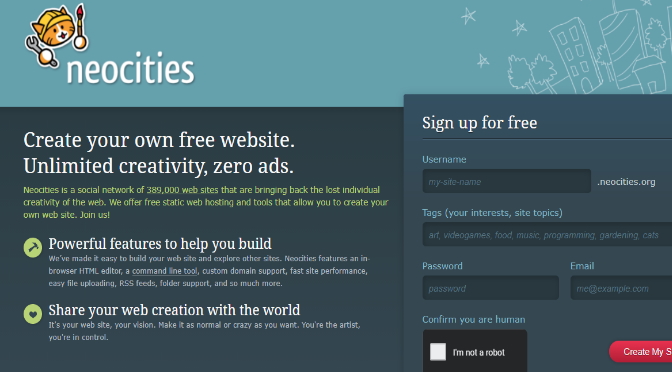Now on Neocities
The ChaosGrenade is now being hosted on Neocities.Org. If that name raises some slight nostalgia, it’s no coincidence, as it’s a nod to the old days of Geocities – back before social media when everyone had a website, and we “networked” through web rings. I figured it was time to quit piggy-backing off my brother’s webhost, and Neocities met all my needs.
What does this mean for the site, exactly? Only that I’ve chosen to remain as a “static” web blog. **GoHugo** has its learning curve, but as I’ve adapted to it I’ve found myself having no desires to go back to WordPress for my needs. I’m not saying it’s the best solution — but as someone who simply wants to spit out text (and the occasional image) I have zero inclination to be worried about databases, plugins, updates or hackers hijacking my website. Should Neocities go tits-up, I can redeploy literally anywhere that will let me host boring html files. I technically could host this site on Github or even Google Drive if I was so inclined.
Fun Stuff with Static Sites
I’ve been using Neocities as an experimental backburner for a while. The first thing I used it for was to experiment with using Tiddlywiki as an RPG reference. Specifically I hosted a modified version of The Black Hack SRD that I used to learn Tiddlywiki with. If I didn’t care how search engines would index my posts, I’d very well just use one of these for my site. Tiddlywiki, for those who don’t know, is a complete wiki notebook in a single HTML file. You can even embed graphics and customize the fonts and styles. What makes them handy is they’re designed to be downloaded onto any device and taken on the go. I have some upcoming projects that will be taking advantage of the format.
While we’re on the topic, Nate Treme has recently started having some fun with the idea of using static html to post dungeon modules. Cellar of Doom is a sample adventure he hosts directly on an itch.io page! At the bottom he includes a video discussing how he wrote the whole thing in Markdown using Ghostwriter. He’s also started a new blog at dungeonresearch.com that has some fun, quirky content for you to use in your dragon games.
Geeking Over My Setup
Like I mentioned before, I’m using GoHugo to create my websites. The simple explanation is that you choose a theme, setup your configuration file, and page/post content using Markdown files. You can run GoHugo as a server, which will automatically update and render the markdown documents into HTML using the site themes. Alternately, and this is how I use it, you can use the Hugo program to render a “public” folder for a static website. I then push the contents of that folder onto my live host.
Neocities offers a way to push a directory via a Command Line Interface using Ruby. This only took a couple minutes to set up on my Windows 10 Laptop, but it works so much faster than my previous use of an FTP client. Their CLI checks and only uploads newer files, so I’m not having to reupload a whole site every time.
Right now for markdown files, I’ve been primarily using Notepad++. I just love the features, it feels familiar (from old days of web work), and I love how I can keep entire directories accessible should I need to reference on something worked in a previous article. As kind of a cheat, I’ve started drafting my blog posts in Notion, a collaborative note app (similar to OneNote) which uses Markdown on its pages. I primarily do this because it allows me to easily write and format on my phone or tablet, and then once I get to my PC I can copy and paste into a .md file where I can “finalize” things and test it out on my local Hugo server. It’s pretty cool that you can copy Notion’s formatted, fancy text and then it pastes as (almost) perfect Markdown text.
It may not be the most ideal setup for many, but it’s mine and it works for how my head space operates.
